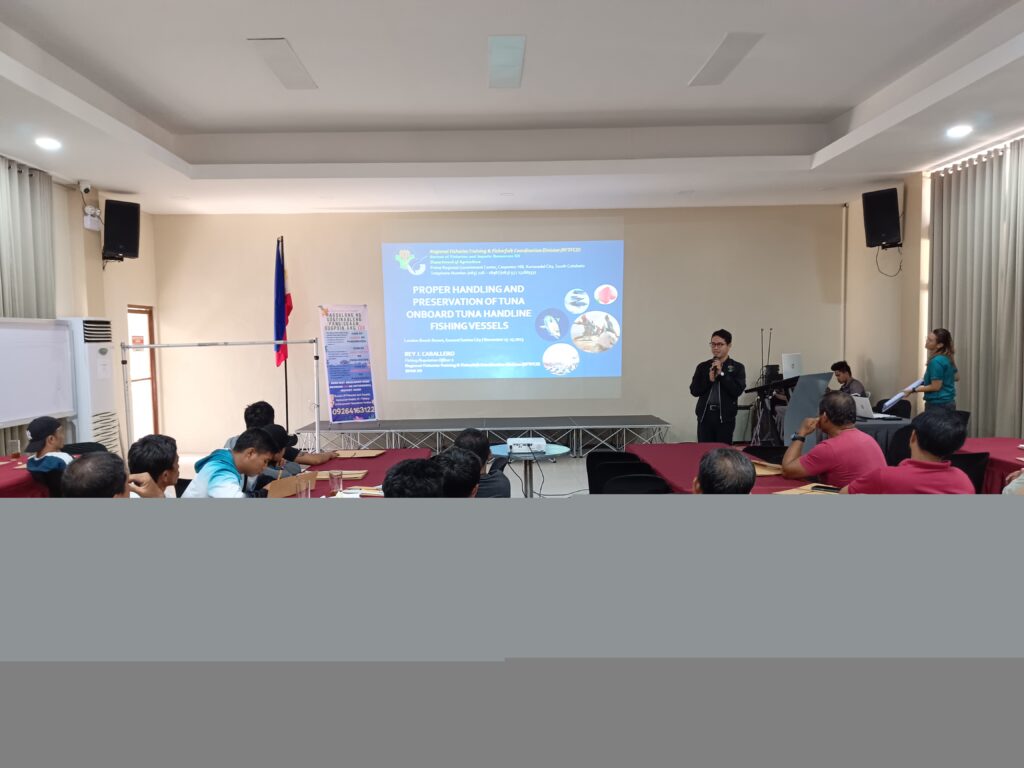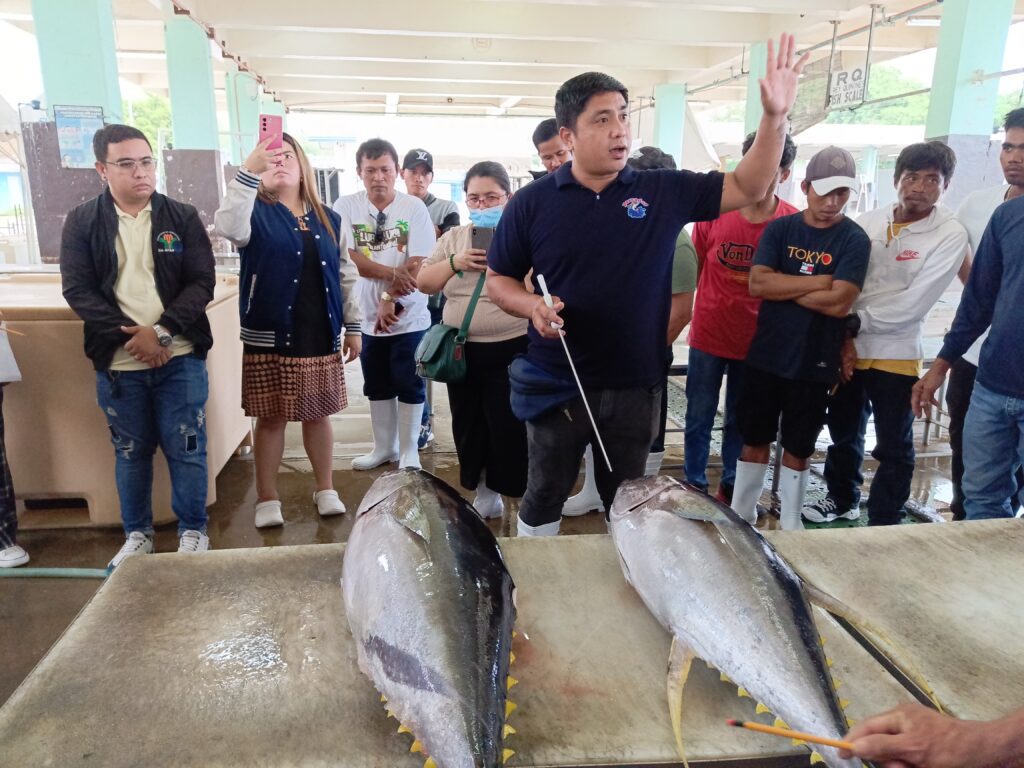Eco-label certificates, such as the Marine Stewardship Council (MSC), set standards for the handling of tuna from catch to consumption. Paving the road toward sustainability in fisheries Commercial Tuna Handliners recently underwent a training on Proper handling of Tuna at General Santos City.
Proper tuna handling is important for several reasons. First, it helps to ensure that consumers are getting a high-quality product that is safe to eat. Second, it helps to reduce waste and improve the efficiency of the tuna supply chain. Third, it helps to conserve tuna populations and protect the marine environment. To ensure the preservation of high tuna quality, the Bureau of Fisheries and Aquatic Resources (BFAR) in partnership with the Socsksargen Federation of Fishing and Allied Industries (SFFAII) facilitated a training on appropriated tuna handling and preservation technique to fifty seven (57) Commercial Tuna Handliners from General Santos City at London Beach Resort and Hotel followed by a practical hands on training at the General Santos City Fish Port.

Training Facilitator Mr. Rey Caballero BFAR RFO12-RFTFCD Fisheries Regulatory Officer discussed proper tuna handling and shelf-life and Good handling and Hygiene Practices Onboard Fishing vessel. He also demonstrated proper way to handle the catch from when it is hooked, to when it is landed, cleaned, chilled and stored.
The session was comprised of theoretical lectures on Proper Tuna Handling followed by a practical workshop at General Santos City Fishport. The goal of the training is to help fishermen understand that their responsibility as fishers doesn’t end on catching the tuna and that they play an essential role in protecting consumers and ensure the integrity of the seafood supply chain. By equipping fishers with the necessary knowledge and skills, they can contribute to a responsible and sustainable fishing industry while ensuring that consumers receive fresh, safe, and high-quality tuna.

